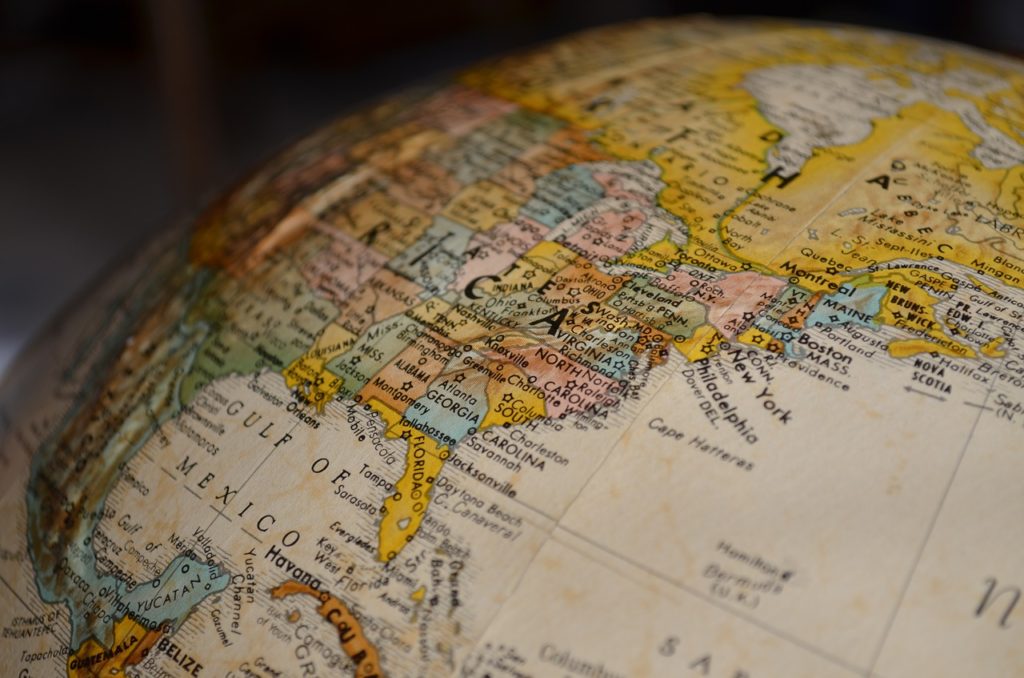US Senator Ted Cruz recently had a heated exchange on Twitter with the chair of American Studies at Harvard, historian Joyce E. Chaplin. The ostensible subject of their 140-characters-or-less skirmish? The birth of the United States of America and what, if anything, recognition by the “international community” had to do with it. Chaplin said it’s all about recognition, and the United States should be thankful for the international community’s support—and should repay that support by continuing to adhere to the Paris Agreement on climate change. Cruz, implying that the United States owes no such debt, said the United States was born out of its own struggle for independence and the eventual victory over the British Empire.
Who got the history right? And who got the international law right? To answer these questions, it will help to consider how international law understands recognition of new countries, and how recognition affected the United States at the time of its origin.
Let’s start by recalling what the senator and the professor Tweeted.
Professor Chaplin started with this: “The USA, created by int’l community in Treaty of Paris in 1783, betrays int’l community by withdrawing from #parisclimateagreement today.” Following up in an interview with The Guardian, Chaplin said, “The treaty . . . in terms of law created the US as one nation among others. . . . There is scholarly consensus on this.”
Start your day with Public Discourse
Sign up and get our daily essays sent straight to your inbox.Senator Cruz disagreed. He replied, “Just sad. Tenured chair at Harvard, doesn’t seem to know how USA was created. Not a treaty. Declaration+Revolutionary War+Constitution=USA.” And further: “Treaty of Paris simply memorialized that fact, of our total victory at Yorktown. Her claim is like saying a plastic globe created the earth.”
Professor Chaplin Tweeted back: “Sad. US senator, Harvard Law degree. Doesn’t know that national statehood requires international recognition.”
So, as Chaplin would have it, if you don’t have international recognition, you are not a state. Chaplin lamented that a lawyer would not “know” this.
The problem is, what Professor Chaplin says Senator Cruz should “know” about recognition of states is not what international lawyers know. There is no “scholarly consensus” among international lawyers that “national statehood requires recognition.” Quite the contrary: one of the longest-running debates in international law splits over that very question. Some authorities would side with Chaplin—a state is not a state until other states say it is. But an at least equal body of opinion holds that recognition merely declares—“memorializes,” as Senator Cruz puts it—that a state has already come into being.
The preferred opinion in recent times has been Senator Cruz’s. This is because, when countries follow Professor Chaplin’s approach and treat the existence of another country as dependent on their own policies, difficulties arise. For one thing, it is discordant to say that a sovereign is dependent upon other sovereigns for its sovereignty. The central characteristic of a state, as sovereign actor, is that it has independence from others of its kind. It might curb its discretion to act on particular topics voluntarily—in particular by entering into treaties—but the state’s power to keep, and to restore, its discretion is undiminished. To see the state as a product of an international community’s decision, as Professor Chaplin sees it, is to miss what is centrally important about states and thus to misunderstand how international relations works today. Many scholars, and many international organizations’ civil servants, would prefer a world in which the state is side-lined. That, however, is not the world in which we live.
The gap here between wish and reality entails more than academic differences. Misunderstanding like Professor Chaplin’s about the reality of international relations—and in particular about the role of recognition of states—can have sanguinary results. As this week of June marks the fiftieth anniversary of the 1967 Arab-Israeli War, it is timely to recall Israel’s experience as cautionary.
In 1948, Israel’s neighbors refused to recognize Israel after that state’s independence—and they attacked. Their goal was to destroy Israel, and they drew comfort from those who say a country is not a country until it is recognized. The attack on Israel was a gross violation of international law. Contrary to their view about recognition, Israel’s neighbors did not hold a right to ignore the existence of the new state by having refused to recognize it. Israel did not owe its statehood to recognition. This is obvious if one has a better understanding of the role of recognition, but Israel’s adversaries persisted, up to and past the 1967 war. The experience of Israel during its war of independence and after is a powerful argument against a “community” approach to the emergence of a new state.
Under the more widely accepted opinion, a new country, as firmly established as the United States in 1783, or Israel in 1948, already enjoys the rights and freedoms that international law provides. It does not earn those rights and freedoms from recognition by a group of existing countries. The existence of a state is not dependent on recognition, nor is it relative: a new country is a country, and if it is a country for some then it is for all.
Now, it is true that one or another old country might choose not to recognize a given new country. The old country has the right to refrain from recognizing. It is extremely inconvenient, even dangerous, for a new country to be isolated like this, and if many countries choose not to recognize the new country, then the new country will have a much more difficult road ahead of it than if it wins rapid, widespread recognition. But no rule of international law says that recognition is a necessary element of statehood.
It is also true that recognition can help settle disputed questions about whether a new state has come into being. Groups of powerful states have used recognition under treaties to create states that had scarcely any real existence at the time. The great powers did this when they met in London after the Second Balkan War and declared the formation of Albania. Some say that the states meeting at Dayton did something similar when they said Bosnia and Herzegovina had become an independent state in the 1990s.
It is a bizarre understanding of history that equates the United States to Albania and Bosnia. The United States had just fought—and won—a continent-ranging war against the world’s greatest empire. The new American government was a real force in its territory. Americans were proud and committed to their new country and its leaders. This was not a nation summoned into existence by international consensus. International consensus, instead, followed American victory in the Revolutionary War, because to have denied that the United States existed would have run against the grain of history. Any country recognizing the United States, perhaps, was helping the United States—Professor Chaplin thinks so—but any country not recognizing the United States was placing itself at a serious disadvantage as others scrambled to establish fruitful relations with the new country. In any event, the various countries of Europe, when they recognized the United States, did not create it.
Moreover, whatever those countries did in 1783, they were not an “international community.” A number of countries entered into a treaty with the United States in 1783. To the extent that this reflected a common understanding, it was transitory. Britain returned in the War of 1812 and attempted to reverse that which Professor Chaplin suggests had been collectively cast into immutable form. The expression “international community” is one of contested legal meaning even today. In the late eighteenth century, it was scarcely recognizable. According to Professor Chaplin, the United States now has “betrayed” a community, but no community existed—and, to the extent one now does, it certainly does not hold a right acquired centuries ago mandating the United States to conform to its desires concerning a completely unrelated treaty.
Professor Chaplin’s initial Tweet was not about international law. And it was not about history. It was, instead, a rhetorical sally, aimed to bolster a political position about the Paris Agreement. Professor Chaplin believes that the United States should be a party to that agreement. Her Tweet suggested that the United States has an obligation to stay in the agreement, and that the United States owes that obligation to the world. From an international lawyer’s standpoint, this is nonsense. Some people might think that the United States has a political or moral obligation to do so, but that is a matter for our political procedures and for conscience. It is not a legal obligation. As for the history, the United States did not come into being due to “cooperation in a community of nations” (another phrase of Chaplin’s), and even to the extent that recognition helped the early United States, the nations that gave it recognition got all they hoped for and more from the bargain.
Academics, as a community, share consensus on many things. This includes Professor Chaplin’s view that the United States should defer to an international community as academics define it. “Scholarly consensus” does not, however, hold that recognition creates the state, any more than history supports the assertion that the international community created the United States. To assert further consensus on matters where opinions in truth diverge is now a habit in the academy. It perhaps serves academics well enough in the confines of their disciplines. It fails them badly almost everywhere else.













